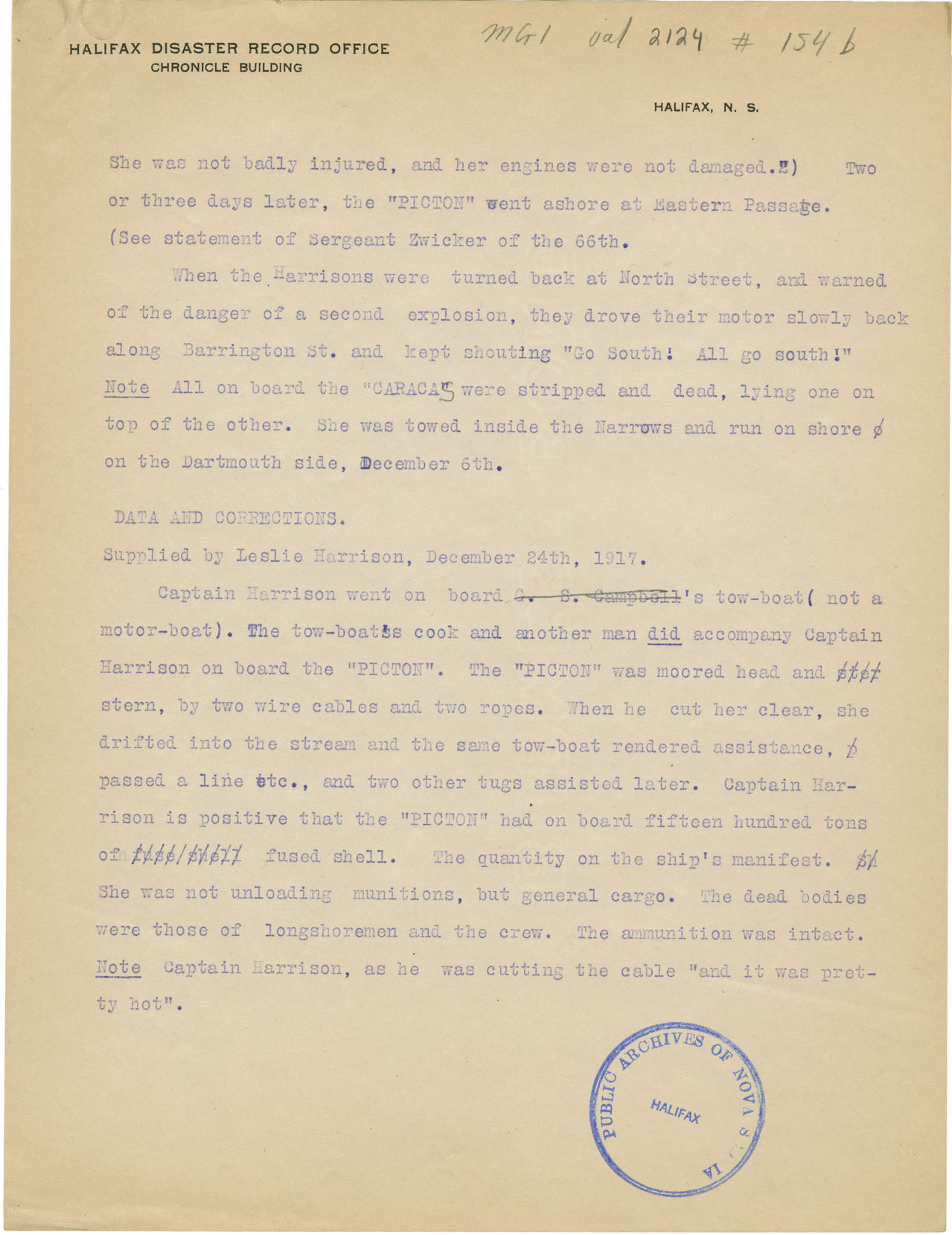Nova Scotia Archives
Archibald MacMechan
Halifax Disaster Record Office Materials
Personal narrative - Lieut. Leslie Harrison, C.G.A
23 December 1917. — 3 pages : 30 x 39 cm.
note: transcription publicly contributed - please contact us with comments, errors or omisions
Halifax Disaster Record Office
Chronicle Building
Halifax, N. S.
She was not badly injured, and her engines were not damaged.") Two or three days later, the "PICTON" went ashore at Eastern Passage. (See statement of Sergeant Zwicker of the 66th.
When the Harrisons were turned back at North Street, and warned of the danger of a second explosion, they drove their motor slowly back along Barrington St. and kept shouting "Go South! All go south!" Note All on board the "CARICAS" were stripped and dead, lying one on top of the other. She was towed inside the Narrows and run on shore on the Dartmouth side, December 6th.
DATA AND CORRECTIONS.
Supplied by Leslie Harrison, December 24th, 1917.
Captain Harrison went on board [G. S. Campbell's] tow-boat (not a motor-boat). The tow-boat's cook and another man did accompany Captain Harrison on board the "PICTON". The "PICTON" was moored head and stern, but two wire cables and two ropes. When he cut her clear, she drifted into the stream and the same tow-boat rendered assistance, passed a line etc., and two other tugs assisted later. Captain Harrison is positive that the "PICTON" had on board fifteen hundred tons of fused shell. The quantity on the ship's manifest. She was not unloading munitions, but general cargo. The dead bodies were those of longshoremen and the crew. The ammunition was intact. Note Captain Harrison, as he was cutting the cable "and it was pretty hot".
Reference: Archibald MacMechan Nova Scotia Archives MG 1 volume 2124 number 154

